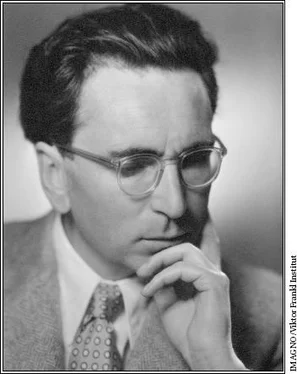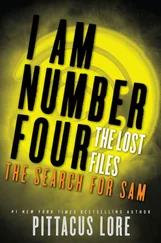The Super-Meaning
This ultimate meaning necessarily exceeds and surpasses the finite intellectual capacities of man; in logotherapy, we speak in this context of a super-meaning. What is demanded of man is not, as some existential philosophers teach, to endure the meaninglessness of life, but rather to bear his incapacity to grasp its unconditional meaningfulness in rational terms. Logos is deeper than logic.
A psychiatrist who goes beyond the concept of the super-meaning will sooner or later be embarrassed by his patients, just as I was when my daughter at about six years of age asked me the question, “Why do we speak of the good Lord?” Whereupon I said, “Some weeks ago, you were suffering from measles, and then the good Lord sent you full recovery.” However, the little girl was not content; she retorted, “Well, but please, Daddy, do not forget: in the first place, he had sent me the measles.”
However, when a patient stands on the firm ground of religious belief, there can be no objection to making use of the therapeutic effect of his religious convictions and thereby drawing upon his spiritual resources. In order to do so, the psychiatrist may put himself in the place of the patient. That is exactly what I did once, for instance, when a rabbi from Eastern Europe turned to me and told me his story. He had lost his first wife and their six children in the concentration camp of Auschwitz where they were gassed, and now it turned out that his second wife was sterile. I observed that procreation is not the only meaning of life, for then life in itself would become meaningless, and something which in itself is meaningless cannot be rendered meaningful merely by its perpetuation. However, the rabbi evaluated his plight as an orthodox Jew in terms of despair that there was no son of his own who would ever say Kaddish 6for him after his death.
But I would not give up. I made a last attempt to help him by inquiring whether he did not hope to see his children again in Heaven. However, my question was followed by an outburst of tears, and now the true reason for his despair came to the fore: he explained that his children, since they died as innocent martyrs, 7were thus found worthy of the highest place in Heaven, but as for himself he could not expect, as an old, sinful man, to be assigned the same place. I did not give up but retorted, “Is it not conceivable, Rabbi, that precisely this was the meaning of your surviving your children: that you may be purified through these years of suffering, so that finally you, too, though not innocent like your children, may become worthy of joining them in Heaven? Is it not written in the Psalms that God preserves all your tears? 8So perhaps none of your sufferings were in vain.” For the first time in many years he found relief from his suffering through the new point of view which I was able to open up to him.
Life’s Transitoriness
Those things which seem to take meaning away from human life include not only suffering but dying as well. I never tire of saying that the only really transitory aspects of life are the potentialities; but as soon as they are actualized, they are rendered realities at that very moment; they are saved and delivered into the past, wherein they are rescued and preserved from transitoriness. For, in the past, nothing is irretrievably lost but everything irrevocably stored.
Thus, the transitoriness of our existence in no way makes it meaningless. But it does constitute our responsibleness; for everything hinges upon our realizing the essentially transitory possibilities. Man constantly makes his choice concerning the mass of present potentialities; which of these will be condemned to nonbeing and which will be actualized? Which choice will be made an actuality once and forever, an immortal “footprint in the sands of time”? At any moment, man must decide, for better or for worse, what will be the monument of his existence.
Usually, to be sure, man considers only the stubble field of transitoriness and overlooks the full granaries of the past, wherein he had salvaged once and for all his deeds, his joys and also his sufferings. Nothing can be undone, and nothing can be done away with. I should say having been is the surest kind of being.
Logotherapy, keeping in mind the essential transitoriness of human existence, is not pessimistic but rather activistic. To express this point figuratively we might say: The pessimist resembles a man who observes with fear and sadness that his wall calendar, from which he daily tears a sheet, grows thinner with each passing day. On the other hand, the person who attacks the problems of life actively is like a man who removes each successive leaf from his calendar and files it neatly and carefully away with its predecessors, after first having jotted down a few diary notes on the back. He can reflect with pride and joy on all the richness set down in these notes, on all the life he has already lived to the fullest. What will it matter to him if he notices that he is growing old? Has he any reason to envy the young people whom he sees, or wax nostalgic over his own lost youth? What reasons has he to envy a young person? For the possibilities that a young person has, the future which is in store for him? “No, thank you,” he will think. “Instead of possibilities, I have realities in my past, not only the reality of work done and of love loved, but of sufferings bravely suffered. These sufferings are even the things of which I am most proud, though these are things which cannot inspire envy.”
Logotherapy as a Technique
A realistic fear, like the fear of death, cannot be tranquilized away by its psychodynamic interpretation; on the other hand, a neurotic fear, such as agoraphobia, cannot be cured by philosophical understanding. However, logotherapy has developed a special technique to handle such cases, too. To understand what is going on whenever this technique is used, we take as a starting point a condition which is frequently observed in neurotic individuals, namely, anticipatory anxiety. It is characteristic of this fear that it produces precisely that of which the patient is afraid. An individual, for example, who is afraid of blushing when he enters a large room and faces many people will actually be more prone to blush under these circumstances. In this context, one might amend the saying “The wish is father to the thought” to “The fear is mother of the event.”
Ironically enough, in the same way that fear brings to pass what one is afraid of, likewise a forced intention makes impossible what one forcibly wishes. This excessive intention, or “hyper-intention,” as I call it, can be observed particularly in cases of sexual neurosis. The more a man tries to demonstrate his sexual potency or a woman her ability to experience orgasm, the less they are able to succeed. Pleasure is, and must remain, a side-effect or by-product, and is destroyed and spoiled to the degree to which it is made a goal in itself.
In addition to excessive intention as described above, excessive attention, or “hyper-reflection,” as it is called in logotherapy, may also be pathogenic (that is, lead to sickness). The following clinical report will indicate what I mean: A young woman came to me complaining of being frigid. The case history showed that in her childhood she had been sexually abused by her father. However, it had not been this traumatic experience in itself which had eventuated in her sexual neurosis, as could easily be evidenced. For it turned out that, through reading popular psychoanalytic literature, the patient had lived constantly with the fearful expectation of the toll which her traumatic experience would someday take. This anticipatory anxiety resulted both in excessive intention to confirm her femininity and excessive attention centered upon herself rather than upon her partner. This was enough to incapacitate the patient for the peak experience of sexual pleasure, since the orgasm was made an object of intention, and an object of attention as well, instead of remaining an unintended effect of unreflected dedication and surrender to the partner. After undergoing short-term logotherapy, the patient’s excessive attention and intention of her ability to experience orgasm had been “dereflected,” to introduce another logotherapeutic term. When her attention was refocused toward the proper object, i.e., the partner, orgasm established itself spontaneously. 9
Читать дальше












